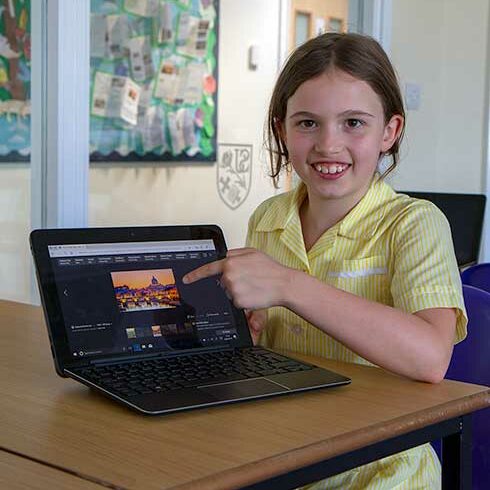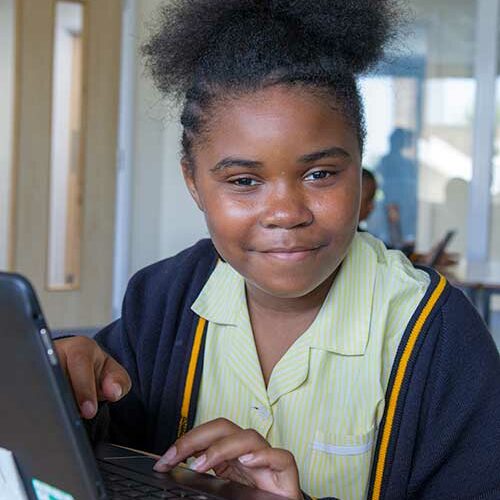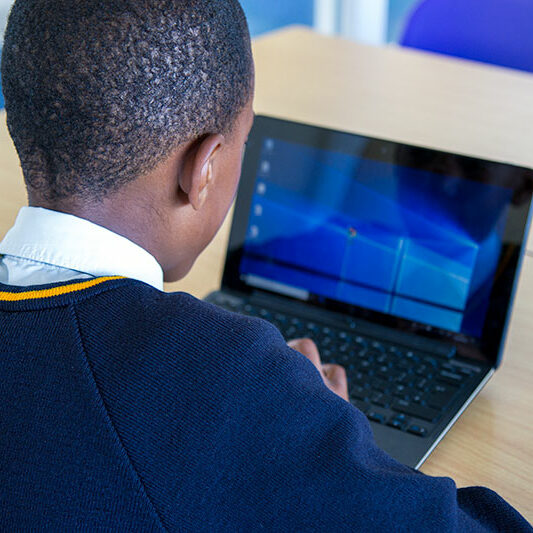What is E-Safety?
E-safety is about electronic safety and ensuring that in our technological world, children are able to use a wide range of electronic devices confidently, but also safely – ensuring that when using technology they know how to keep themselves and others safe in and out of school.
The Internet has become an integral part of children’s lives, enabling them to undertake research, talk to their friends and access information from around the world. Internet development is constantly evolving with an ever increasing number of electronic devices available from which children can access the internet and many websites enabling amazing creativity and interaction between peers.
It is important that both in school and at home children are taught about how to keep themselves safe when using technology and the internet so that they have a full understanding of how to be responsible users of technology.
So what are the dangers?
The Internet is like bringing a city into your living room: there are the exciting places for children to go and enjoy but also lots of places where you would not want your children to go unsupervised!

The main dangers for children can be grouped into:
- Potential CONTACT - from someone online who may wish to harm them. Children must re-learn the "stranger = danger" rule in a new context and never give out personal details or meet alone with anyone they have contacted via the Internet.
- Inappropriate CONTENT - keep an eye on the material your children are looking at and agree the ground rules about where your children go and how they behave.
- Excessive COMMERCIALISM and advertising which invades your child's privacy. Encourage your children not to fill out forms which ask for lots of personal details.
Can't I just use a filter? Filtering software can help to block a lot of inappropriate material but they are not 100% effective and are no substitute for good parental involvement.
Internet use at school is filtered and supervised but many children use the internet at friend's homes, Internet cafes, libraries and youth clubs where there may be no filters and little supervision. It is therefore important to help educate your children about how to behave online and discuss problems which they may have. It helps to keep the computer in a family room - not tucked away in a bedroom.
What about mobile phones and other devices?
The issues about being careful online apply equally to mobile telephones and other devices from which children can access the internet such as game consoles, i pads etc. It is very important to encourage children not to give out their mobile numbers to strangers or people they do not know very well. Also talk about the sort of text messages your children are receiving and sending and the importance of only sending messages which will not upset others. Cyber bullying is bullying which takes place using technology. It does not happen face to face but is just as painful for the victim as it intrudes into their home, with emails and text messages being sent at any time or in any place. Children must be taught to take care with their choice of words on an email or text message and to consider how their phrases may be interpreted by others.
Stick to the positive
Encourage your children to stick to the fun and positive sites on the internet that reinforce their interests. Just as you look out for good TV programmes for children take the time to find the best and most useful websites for you and your family.


Communicating your issues
If you start by telling your child never to do something most children will ask "why not?" and then try to find out! Discussing the potential dangers with your children therefore needs care and sensitivity and involves helping them to see for themselves how they might get into difficulty. Most children will respond more positively if you encourage them to be SMART on the Internet rather than giving them a list of "Dos and don'ts"! The following SMART TIPS have been written especially for children aged 8-14 years.
- SAFE - Staying safe involves being careful and not giving out your name, address, mobile phone no., school name or password to people online.
- MEETING someone you have contacted in cyberspace can be dangerous. Only do so with your parent's/carer's permission, and then when they can be present.
- ACCEPTING e-mails or opening files from people you don't really know or trust can get you into trouble - they may contain viruses or nasty messages.
- RELIABLE - Someone online maybe lying about who they are, and information you find on the Internet may not be reliable.
- TELL your parent or carer if someone or something makes you feel uncomfortable or worried.


